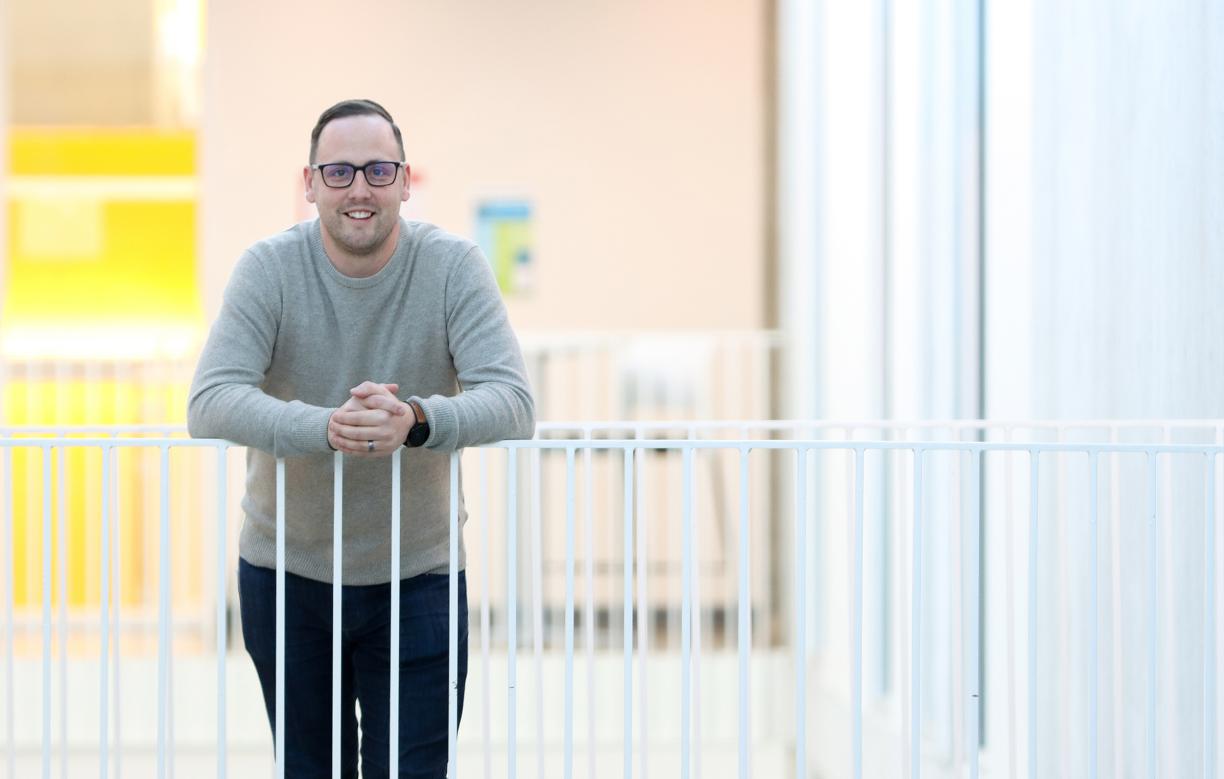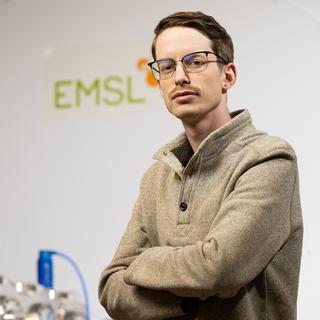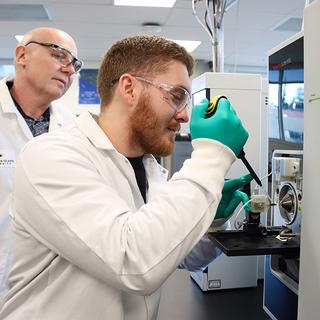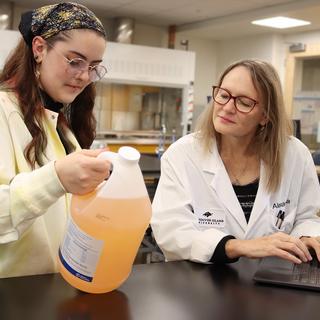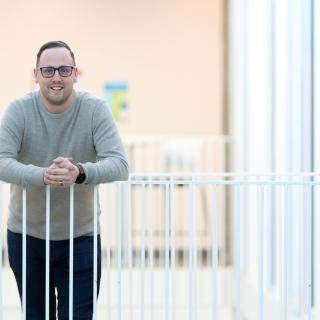Dr. Kyle Duncan received an NSERC Discovery Grant of $125,000 over five years to pursue his research. Vancouver Island University Photo
Chemistry Professor Dr. Kyle Duncan receives NSERC Discovery Grant to help develop new mass spectrometry imaging technology.
A Vancouver Island University (VIU) Chemistry Professor is developing mass spectrometry technology that could help discover new treatment options for cancer.
Dr. Kyle Duncan is building custom mass spectrometry imaging technology to help get a more accurate picture of metabolites in tissue. Metabolites are small molecules that control the metabolism of our cells. Changes in the presence or number of certain metabolites in specific regions of tissue can result in disorders or be a sign of serious and chronic diseases such as diabetes or cancer.
Current methods to examine tissue metabolites require cutting out specific regions for analysis by a mass spectrometer, but this means information from the adjacent cells is lost. Duncan’s method is to image metabolites directly in specific regions of tissue, which gives a more accurate and detailed picture. To apply this technology, he is currently collaborating with other members of MetaboBC to help understand how metabolites are distributed in healthy and cancerous tissue with the aim of discovering potential treatment options to disrupt cancer growth and progression.
Duncan received a Natural Sciences and Engineering Research Council of Canada (NSERC) Discovery Grant of $125,000 over five years to pursue his research. He also received a Discovery Launch Supplement, a grant for early career researchers, of $12,500.
“Our body’s metabolic processes are highly dynamic and can compensate or react to changing conditions at the molecular level, creating a moving puzzle with many intricate pieces,” said Duncan. “The fundamental research enabled by this grant allows me to pursue my passion – exploring this boundary between chemistry and biology.”
Duncan’s state-of-the-art technology provides images similar to those a camera produces. A camera has a combination of red, green and blue pixels to create the image. Instead of colours in each pixel, mass spectrometry image pixels provide a simultaneous snapshot of different metabolites in tissue, anywhere from one to thousands. This more detailed picture will allow scientists to determine if metabolites are higher in particular regions of tissue, and if so, why.
-30-
Media Contact:
Rachel Stern, Communications Officer, Vancouver Island University
C: 250.618.0373l E: Rachel.Stern@viu.ca | T: @VIUNews

